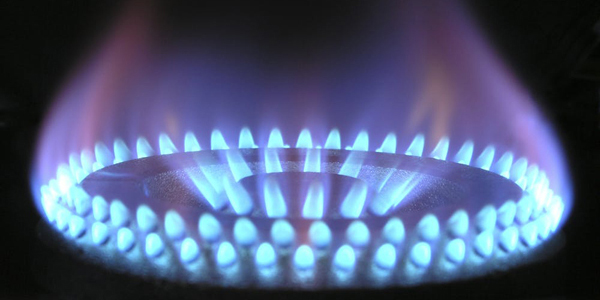OLYMPIA – A bill signed into law Thursday by Gov. Jay Inslee will force billions of dollars in new costs onto homeowners, renters and businesses, says Sen. Chris Gildon, R-Puyallup.
“Make no mistake about it – this law sets the stage for a natural gas ban in the central Puget Sound area,” Gildon said. “As the governor said during the bill-signing, it gets Puget Sound Energy out of the natural gas business. It’s going to be horrendously expensive, it’s going to be a direct hit on consumers, and it accomplishes next-to-nothing. And I am afraid it is only a matter of time before this bad idea is exported to other areas of the state.”
House Bill 1589, signed into law by Gov. Jay Inslee Thursday, proved one of the most divisive bills of the 2024 Legislative session, favored by most Democrats and opposed by all Republicans, and passed by the narrowest of margins. The measure allows Washington’s largest utility to meet arbitrary state emissions requirements by more than doubling consumer gas prices, discouraging gas usage, and ultimately shutting off gas service one community at a time.
Under the bill, Puget Sound Energy will present plans for phaseout of natural gas to the state Utilities and Transportation Commission by 2027. The utility’s 900,000 gas customers will be responsible for replacing gas furnaces, water heaters, stoves and commercial and industrial equipment. PSE’s residential customers will face a cost of $7 billion to $10 billion converting to electricity, with average costs expected to be about $40,000 per home. But owners of older homes can expect much higher costs because of necessary upgrades to wiring, electrical panels and other equipment.
By Puget Sound Energy’s own estimates, electricity rates will increase 37 percent during the phaseout period. Rates for natural gas, while it is still available, will increase 151 percent.
The bill also changes the goal of state utility regulation from reducing costs to consumers to promoting ‘decarbonization.’
Gildon said advocates for the bill have created confusion about what the bill does. Early versions of Puget Sound Energy’s proposal contained an outright ban on natural gas, and the final version does not. Gildon said the distinction doesn’t make a difference, because the final bill still allows PSE to propose a phaseout plan to state regulators, all of whom are appointed by the governor.
“This bill gives the state’s largest utility a way to pass the cost of the climate agenda to the consumer,” Gildon explained. “Elected officials are declaring no cost is too great and no benefit is too small, and they are handing the bill to the people and saying, ‘you pay it.’
“Power bills will skyrocket. Homeowners will pay tens of thousands of dollars to replace gas appliances and make needed upgrades. Rents will increase and housing will become even less affordable. Hardship on business will be immense. We might even see business closures, because in some cases natural gas cannot be replaced. We’ll be putting more demand on our electric grid and making blackouts more likely.
“Yet all we’ll be doing is junking one of our cleanest, cheapest and most reliable forms of energy for no real benefit at all. This bill will have no measurable impact on world climate, because Washington produces just two-tenths of one percent of world emissions, and this would merely reduce them slightly. What little we will accomplish with this law just isn’t worth the misery it will cause.”











